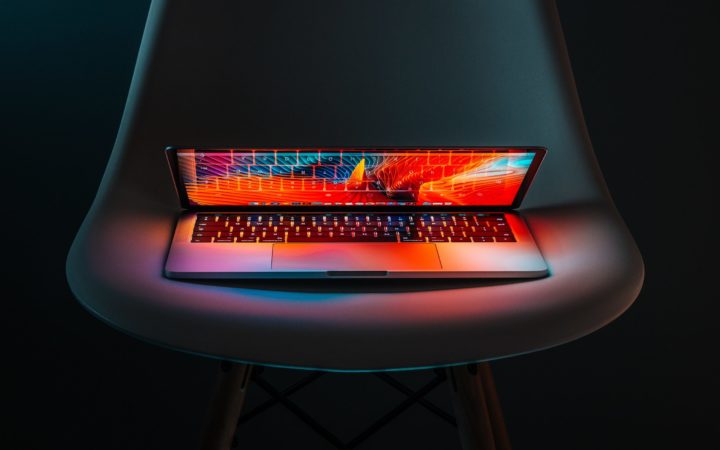The LOOP Labs participants Hanna Skoog and Jennifer von der Heydt on circular e-commerce innovation
03.02.2021Hanna Skoog (Axfoundation) and Jennifer von der Heydt (Loop-it) share insight they have gained from participating in the LOOP Labs, and what must happen to make circular innovations a reality.
How do you get more circular innovations on the market? One way is to facilitate conversations across various industries and communities: And this happened when the LOOP Labs did several live-streamed sessions on innovating e-commerce, at the end of 2020. People from organizations such as Axfoundation, Loop-it, WAM, Byboks, Smartmile, and Reima joined in for the sessions, where the intention was to co-create innovative ideas that could make e-commerce more sustainable.
With a community and a mindset tuned in to making lasting change, LOOP hopes to help startups and corporations create sustainable solutions for the future. LOOP works in four countries: Antrop (Sweden), Verona Growth (Finland), Agens (Norway), Startup Iceland (Iceland), and Startup Norway (Norway) – and is supported by Nordic Innovation. Startup Norway has joined this network together with Agens to work on a Nordic level to support more companies going circular.
Through LOOP, companies can get help with piloting and scaling their circular business model idea: They can test with customers and get feedback on the business model.
Practical focus on real challenges companies are facing
Hanna Skoog is the Program Director of Circular Economy within the independent, non-profit organization Axfoundation. On their website, Axfoundation write that they are “working practically and concretely towards building a sustainable society.” The non-profit believes strongly in business as a driving force for change, and therefore they often initiate and run projects together with the private sector. Alongside 225 partners across sectors and industries, they tackle local and global sustainability challenges based on practical issues related to people’s shopping habits, food consumption, and usage of resources. Skoog was a participant at the LOOP Labs, and says the sessions opened up people’s minds to understanding the opportunities.
“The circular transition of companies is complex and no company can find and implement circular solutions on their own. We need crosssectoral collaborations and exchange of knowledge and “know how” to succeed. I think this is the most important value that the LOOP Labs can provide. I also love the practical focus on real challenges companies are facing, an approach very similar to Axfoundation’s mission.”
Opening one’s mind to seeing new opportunities is certainly a major step on the way to succeeding at innovation, but how can we make sure the innovation will get implemented? Skoog says that for the circular economy to truly get accepted in people’s lives, it should not pose a challenge to our routines.
“We must remember that the linear economy has been very successful, for companies, economic and welfare development, and customers. And we are far from a legislative system that puts the economy and business within the boundaries of our finite planet. Hence, since we are in a hurry and can’t wait for a new societal and economic order, I believe circular innovations and services must fit linear trends and consumption patterns. It must be as attractive, easy, and trendy to use circular services as buying new”, says Skoog.
Skoog says she would recommend people to sign up for the coming LOOP Labs to meet peers, exchange experiences, and get inspired. Another advantage is that you can find relevant areas of collaboration for your company in the area of circular economy.
We see a future without packaging waste littering
Among the things you can return in the future, there is food packaging: Another of the workshop participants was loop-it – a Swedish company that develops a digital deposit system for reusable packaging. Jennifer von der Heydt is the co-founder of loop-it, and she says shops will have to change people’s mindset about packaging.
“We enable companies and people to reuse packaging again in order to eliminate single-use packaging. And by that saving money, waste and resources, enabling returning customers as well as showing the environmental impact by tracking every product in use and incentivising the return. We have started in the take-away industry with reusable cups and food boxes and are now ready to open up our digital deposit system for any item that can be reused. We see a future without packaging waste littering our homes, streets and environment”, says von der Heydt.
She says the LOOP Labs was particularly valuable due to the conversations it facilitated.
“It was great to connect with many different key actors. We always talk about the need to collaborate in order to create change. This is exactly what we did at the LOOP Lab. We sat together and discussed the topics as people with different backgrounds. Not as different companies trying to make business. It was amazing to connect in this way with large and small companies, all working towards the same goal.”
One of the biggest challenging facing companies and people within the circular economy, is the simple fact that single-use items are disposable and convenient: You do not have to return anything to the shop you got it from. Will the future person carry used packaging with them everywhere?
“It’s all about convenience, benefits and added value – this is why we need to rethink existing systems in order to remake and relearn them. This is another aspect where the importance of collaboration comes into place. It is about connecting the dots and using existing resources and infrastructures. Logistic and delivery services who go from A to B anyways. Why not also pick up used packaging? People could return or refill packaging at shops, send them back or get them picked up. Collaboration is key. Loop-it’s mission is to make reusing as convenient as single-use, but better with added benefits, features and values”, says von der Heydt.
Having communities where people from different companies and industries can come together and share insights will be another way of making circular efforts convenient: After all, the perks of convenience are hard to let go of when innovating. Challenging people to “break from their habits” will be another way of challenging their convenience, but also paving the way for a new kind of convenience. Bringing fun into the serious task of innovating our economy is also important.
“LOOP Labs is very well organised, spot on and brings together diverse, driven and inspiring people. It makes you think outside your own box, gives you valuable insights and puts you in the same room as other key stakeholders. And you will have great discussions with other people that can lead to great partnerships and opportunities”, says von der Heydt.
LOOP Labs definitely made people think more creatively about the future – and we are excited to see what may come from this! Working in diverse and interdisciplinary teams seems to be part of the solution: We do after all think better when we draw upon input from a wider community and greater range of people. LOOP Labs is aiming for a future where such conversations will be the norm – and we would like you to join us in making it happen.
Written by: Benedicte Tandsæther-Andersen, Startup Norway
LOOP is an ecosystem taking circular economy from strategy to action. Contact us if you want to explore new opportunities, take your circular service to the market with agile methods or hear about the next LOOP Labs.


